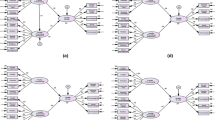Abstract
This paper argues that the value of genetic-relative family health history (GRFHx) information and the notion that lack of this information is a disadvantage can be established through its role as a nested goal in comprehensive life projects independent of documentation of particular health outcomes. Health information often plays a significant role in a person's formulation of life goals and projects, as well as in identification of plausible effective means to realize these goals. If health outcomes are valuable in part because of the nested role these play in the successful realization of a person's life projects and goals, then other, similarly nested contributors to such success must also be valued on a similar scale. Some of these other contributors to a successful life may themselves be nested with health considerations, as illustrated in the relationship that will be the focus of this paper. Health information --independent of outcomes per se – influences relationships, reproduction, and the formulation of plausible comprehensive life goals in intricate and very influential ways. Although such information may be valued in part because it is predictive of health outcomes, this relationship does not reduce such information, nor the comprehensive life goals and projects such information promotes, to health outcomes. That is, while health status can both enhance and detract from the autonomous (successful) pursuit of life projects formulated in the context of health information, the value and weight of these projects is independent of particular health status or outcomes, even while in part shaped by them.
Similar content being viewed by others
References
Baptista, N., Christensen, K., Carere, D., et al. (2016). Adopting genomics: Motivations and outcomes of personal genomic testing in adult adoptees. Genetics in Medicine, 18(9), 924–932.
Beauchamp, T., & Faden, R. (1986). A history and theory of informed consent. Oxford: Oxford University Press.
Crouch, J., Yu, J., Shanker, A., et al. (2015). We don’t know her history, her background: adoptive parents’ perspectives on whole genome sequencing results. Journal of Genetic Counseling, 24(1), 67–77.
Daniels, N. (1985). Just health care. Cambridge: Cambridge University Press.
Erikson, E. H. (1950). Childhood and society. New York: Norton.
Erikson, E. H. (1968). Identity: Youth and crisis. New York: Norton.
Fullerton, S. (2016). No panacea: Next-gen sequencing will not mitigate adoptees’ lack of genetic family health history. American Journal of Bioethics, 16(12), 43–45.
Gaylin, W., & Jennings, B. (2003). The perversion of autonomy. Washington, DC: Georgetown University Press.
Grotevant, H. D. (1992). Assigned and chosen identity components: A process perspective on their integration. In G. R. Adams, R. Montemayor, & T. Gulotta (Eds.), Advances in adolescent development (Vol. 4) (pp. 73–90). Newbury Park, CA: Sage.
Grotevant, H. D., & McRoy, R. G. (1998). Openness in adoption: Connecting families of birth and adoption. Newbury Park, CA: Sage.
Grotevant, H. D., McRoy, R. G., Wrobel, G. M., & Ayers-Lopez, S. (2013). Contact between adoptive and birth families: Perspectives from the Minnesota Texas Adoption Research Project. Child Development Perspectives, 7, 193–198.
Grotevant, H. D., & Von Korff, L. (2011). Adoptive identity. In S. Schwartz, K. Luyckx, & V. L. Vignoles (Eds.), Handbook of identity theory and research (pp. 585–601). New York: Springer.
Katz, J. (1984). The silent world of doctor and patient. NY: The Free Press.
May, T. (2005). The concept of autonomy in bioethics: and unwarranted fall from grace. In Taylor, J. (Ed.), Personal autonomy: New essays on personal autonomy and its role in contemporary philosophy. Cambridge: Cambridge University Press
May, T. (2009). Bioethics in a liberal society: The political framework of bioethics decision-making. Baltimore: Johns Hopkins University Press.
May, T., Evans, J., Strong, K., et al. (2016a). “Costs, Capabilities and Scope” in characterizing adoptees’ lack of “Genetic Relative Family Health History” as an avoidable health disparity. American Journal of Bioethics, 16(12), 4–8.
May, T., Strong, K., Khoury, M., & Evans, J. (2015). Can targeted genetic testing provide useful health information for adoptees? Genetics in Medicine, 17(7), 533–535.
May, T., Strong, K., Zusevics, K., et al. (2016b). Does lack of “Genetic Relative Family Health History” represent a potentially avoidable health disparity for adoptees? American Journal of Bioethics, 16(12), 33–38.
Melo-Martin, I. (2016). Lack of access to genetic-relative family health history: A health disparity for adoptees? American Journal of Bioethics, 16(12), 43–45.
Pierce, R. (2016). Technology-driven “disparities” and technological solutions. American Journal of Bioethics, 16(12), 48–50.
Raz, J. (1986). The morality of freedom. Oxford: Oxford University Press.
Skinner-Drawz, B. A., Wrobel, G. M., Grotevant, H. D., & Von Korff, L. (2011). The role of adoption communicative openness in information seeking among adoptees from adolescence to emerging adulthood. Journal of Family Communication, 11(3), 181–197.
Strong, K., May, T., McCauley, M., La Pean Kirschner, A., Jeruzal, J., Wilson, S., et al. (2017). Adult adoptees’ attitudes regarding the potential use of genetic information to fill the gap in their family health history. Adoption & Fostering, 41(2), 159–169.
Wrobel, G. M., & Dillon, K. (2009). Adopted adolescents: Who and what are they curious about? In G. M. Wrobel & E. Neil (Eds.), International advances in adoption research for practice (pp. 217–244). London: Wiley.
Wrobel, G.M., & Grotevant, H.D. (2016, May). Adoption related curiosity at emerging adulthood. Poster presented at the New Worlds of Adoption and Foster Care conference: Thriving on the Frontline. Amherst, MA.
Wrobel, G. M., Grotevant, H. D., Samek, D., & Von Korff, L. (2013). Adoptees’ curiosity and information seeking about birth parents in emerging adulthood: Context, motivation, and behavior. International Journal of Behavioral Development, 37(5), 441–450. https://doi.org/10.1177/0165025413486420.
Author information
Authors and Affiliations
Corresponding author
Rights and permissions
About this article
Cite this article
May, T., Grotevant, H. Autonomy, Well-Being, and the Value of Genetic Testing for Adopted Persons. HEC Forum 30, 283–295 (2018). https://doi.org/10.1007/s10730-017-9345-0
Published:
Issue Date:
DOI: https://doi.org/10.1007/s10730-017-9345-0




